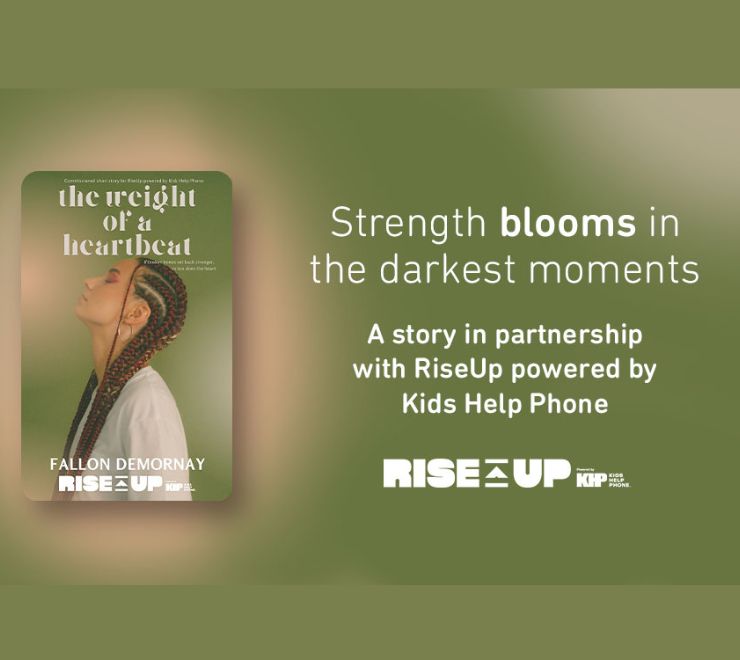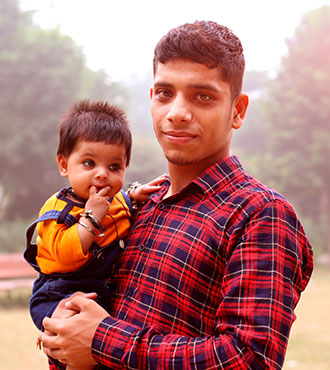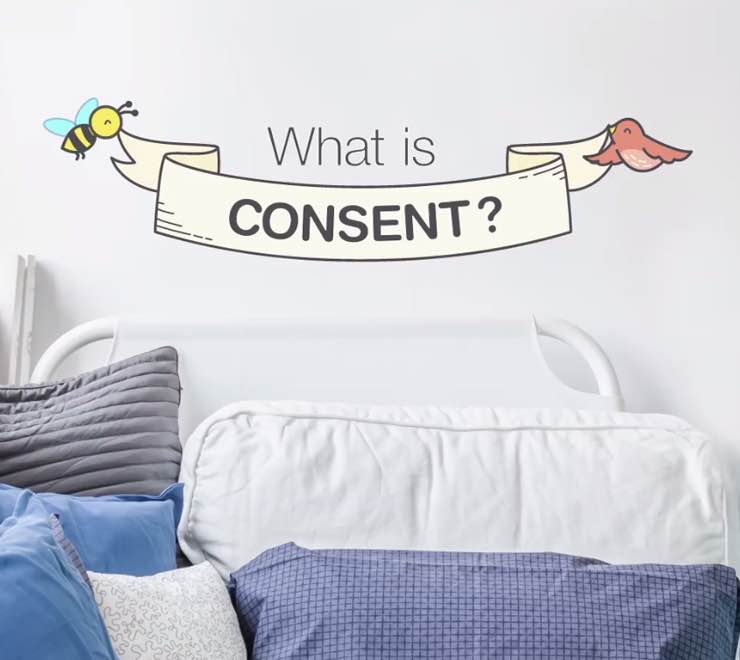You and your parent/caregiver may have different opinions about dating and the people you want to date. Here’s how to navigate family conversations around dating and relationships.
Every family has different approaches to dating. Parents/caregivers may have their own reasons they don’t want you to date, like they think you’re too young or religious/cultural reasons. Maybe you’re allowed to date, but your parents/caregivers don’t like the person/people you’re dating.
If you and your parents/caregivers have a disagreement about dating, try to have a calm discussion and be willing to compromise.
Here are some common scenarios that can happen
“My parents/caregivers don’t want me to date.”
If your parent/caregiver won’t let you date, ask them why not. Do they think you’re too young? Are they worried about your safety? Are they concerned that dating is a distraction from school?
Taking their concerns seriously shows maturity. Suggest compromises they may feel more comfortable with such as group dates, coming home by a certain time or only going out with people they’ve met.
If your parent/caregiver refuses to discuss dating, talk to another adult, such as an older relative or sibling, who can help you understand their point of view and maybe help you talk to them. A Kids Help Phone counsellor may be able to help you work out an approach to dating that your parent/caregiver can agree to at 1-800-668-6868.
You may not be able to change your parent/caregivers’ minds. Many families have expectations that young people won’t date or have relationships until they reach a certain age or are ready to get married. The reasons may be religious, cultural or personal. For these families, the issue of dating isn’t up for negotiation. While some teens may be OK with not dating, others may feel frustrated or angry.
It’s a good idea to try to find realistic solutions. For example, would your parent/caregiver be OK with you having more friends instead of dating? Would they let you go to a movie with a group if an adult is there? If this sort of negotiation doesn’t work, you may need to accept your parent/caregivers’ rules, at least for now. Remember that you can always contact Kids Help Phone at 1-800-668-6868 if you need to talk.
“My parents/caregivers don’t like the person/people I’m dating.”
Knowing your parent/caregiver don’t like the person you’re dating can be hard to deal with. Figuring out why is the first step. Maybe they’re concerned about:
- Your safety: they may not like the way your partner(s) treats you. Consider if they may be on to something and if there are ways to make sure your relationship is safe and healthy.
- You growing up: they may dislike your partner(s) because they’d rather you not be dating at all. They may be having trouble adjusting to you growing up.
- Your partner’s ethnicity, economic situation, gender identity or religion: some parents/caregivers have biased or discriminatory attitudes about other people.
“My parents/caregivers are worried about pregnancy or STIs.”
Pregnancy and sexually transmitted infections (STIs) are risks of being sexually active. Your parent/caregiver want to keep you safe and healthy. If you think they’d be open to a conversation about sex, having an honest discussion may help to ease their worries. Here are some tips:
- You can tell them that you understand their concerns and that you also want to avoid these risks.
- You can show them that you’re well informed about safer sex. If you’ve visited your doctor or a sexual health clinic such as Planned Parenthood to learn about safer sex, you can tell your parents/caregivers about what you discovered and show them the information you received.
- If you’re not sexually active, you can say so. Your parents/caregivers may appreciate knowing that you aren’t going to have sex until you’re ready.
Discrimination and dating
Sometimes, parent/caregivers’ rules about dating aren’t solely about keeping you safe — they also reflect discriminatory attitudes and beliefs.
Some parents/caregivers forbid or discourage their children from dating someone because of their ethnic or cultural background, gender identity, religion or another perceived difference. Dealing with your parent/caregivers’ discrimination can make dating difficult, stressful and confusing. It can also make life at home really tense.
What is discrimination?
Discrimination means treating someone unfairly or negatively because of a certain characteristic. Often, discrimination is based on stereotypes, assumptions, ignorance or fear.
People often discriminate based on:
- skin colour or race
- culture
- religion
- ethnic background
- where a person comes from
- gender identity
- sexual orientation
- economic status or career ambitions
- appearance
- abilities
Why do some parents and caregivers discriminate?
Parents/caregivers may discriminate against their child’s partner(s) for a number of reasons including:
- Stereotypes: they may have false ideas about your partner(s) because of stereotypes or wrong assumptions.
- Fear: they may feel uncomfortable with the person/people you’re dating because they seem “different” than you and your family.
- Their own experiences: they may have had a negative experience that has made them dislike certain groups of people.
- Status: they may be worried that if you date someone “different,” you’ll lose your culture, place in your community or respect from others.
Dealing with your parent/caregivers’ discrimination
If your parents/caregivers are opposed to you dating someone because of discriminatory attitudes, you have options including:
- Talk to your parents/caregivers about their attitudes and beliefs. Ask them to get to know the person you’re dating before making judgments.
- Ask an adult whom your parents/caregivers respect (a relative, guidance counsellor, teacher, etc.) to talk to them on your behalf.
- Wait until your parents/caregivers seem more open-minded before introducing your partner in person.
- Try to stay hopeful. Sometimes, talking things out with your parents/caregivers can go a long way.
Navigating family conversations around dating and relationships can be difficult and uncomfortable, but there are things you can try to make discussions easier (and get more support). Remember to take care of yourself and ask for help when you need it.
































